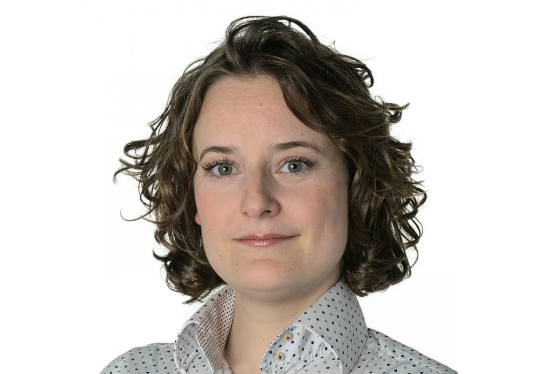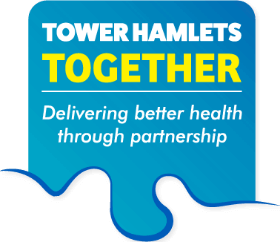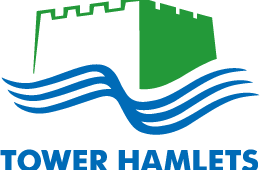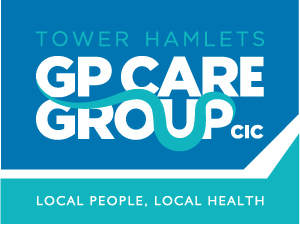Amy's Monthly Briefing - July - August 2023
The borough’s vision of a seamless health and care experience for its citizens.

My THT highlight this summer was attending the summer fair on 20 July!
My THT highlight this summer was attending the summer fair on 20 July! It was wonderful to see over 600 people from across the partnership come along, share their fantastic work and build even stronger relationships. As I said on the day, "THT" isn't the Board I chair but each and every frontline worker who works tirelessly to deliver health and care services to our local community - you all further our vision to transform the health and lives of people in Tower Hamlets, day in and day out. We've not been able to come together in person like that since 2019, so it felt even more special. Thanks again to everyone who attended, hosted stalls and especially the core team that pulled off such a brilliant event!
At the July Board, we heard from Toynbee Hall in our regular user voice slot. They presented their participatory action research approach that brings together people with lived experience, policy-makers and stakeholders to drive change. In 6 years, they have worked with 250 peer researchers and experts by experience to influence national and local policies, including four council strategies, the regional Greater London Authority adult education budget, Ofgem's transition to net zero and the Treasury’s no-interest loan scheme. They moved to this approach in response to people feeling they were over-consulted by stakeholders but nothing got done, so it was a challenge initially to recruit peer researchers who were willing to be trained and then deliver – there was a lack of trust it would be anything different than the usual consultation methods. But they built it up slowly through word of mouth and learning what works and doesn’t.
The benefits have included better engagement with marginalised communities e.g. 60 Bangladeshi women on community safety. Nasrat, a peer researcher for over 5 years, told us about the value of people engaging in this work within their own communities - "it makes me very empowered, makes me feel very listened to.” Ofgem fed back that the ground-up approach gave them exposure and empathy to understand people’s experience better, make sure they were communicating clearly and asking the right questions to customers, and create a dialogue which benefits both sides. Nasrat's call to action was for every THT organisation to take on this approach and include users more meaningfully, as residents often have more knowledge about what can be done to make things better. She reflected that this approach is powerful for residents too as it's not about blaming the services or decision-makers, but offering the solutions.
In July, we also approved allocation of health inequalities funding delegated from North East London to each local Place for 2023-26. The priority areas of focus, shaped by the lifecourse workstreams and with an emphasis on working with the voluntary sector, not plugging gaps in existing statutory services, are:
- supporting health needs of children in care
- supporting the continuing care cohort
- improving maternity outcomes
- enhanced CAMHS support for transgender/questioning and Bangladeshi young people
- providing community based foot health services to homeless people
- supporting people experiencing dementia and their informal carers
- preventing and early detection of long-term conditions including CVD, COPD, diabetes and cancer in communities more at risk
- improving the physical health of people with severe mental illness
- focus on learning disability
- piloting voluntary and community sector projects in collaboration with primary care networks, focussed on prevention
The Board approved the allocation but also asked for an update on progress against the anti-racism action plan, and proposals to address LGBTQ+ health inequalities, to be brought back to a future meeting ASAP.
We also agreed the Better Care Fund allocation and endorsed the Primary Care Improvement Week planned for early October, which aims to understand what is generating failure demand (how many failed attempts a patient makes before they get an appointment), given all the various modes of communication available (online, telephony, text, in person, walk-ins), by looking at where residents turn up in the system and how primary care, and other services, respond.
In August, we had a focus on children and families. The community voice item focussed on a community-led research project into autism prevalence in the Somali community, which originally came out of advocacy by the Somali Working Group plus a council SEND report that identified the issue. Crucially, the local Somali community is the driver of the work and part of the research steering group. The aim is to establish epidemiological evidence about prevalence, to understand experiences of services, and to co-develop policy recommendations. The Board heard that there are complex findings underlying the apparent increased prevalence and very little research focused on Somali children and autistic spectrum disorder (ASD), but some emerging themes include late diagnosis because parents didn’t know where to go or how to navigate the system and lack of access to care linked to language barriers. The Board welcomed this much needed work and THT's leads for adults and children's SEND services committed to engage directly with findings and agree on next steps with the research team.
The children and families programme update highlighted the long-term impact of Covid and current impact of the cost of living crisis, which is exacerbating the pressures on families given we already had the highest level of child poverty. We agreed the Board needed to have a deep dive on the Covid impact on children within the next 6-9 months. Children’s mental health is another major issue, with a huge rise in demand, need for more CAMHS resource, and work to implement a systematic offer in every school in the borough. Other priorities include SEND, healthy weight, child poverty and common ways of working - including family hubs, partners being more joined up in each of our four localities, and a stronger early help offer within children and family centres.
The Board discussed how benefits and income maximisation is critical to addressing child poverty and links strongly to anti-racism work, as there is such a strong intersection between ethnicity and class. THCVS flagged the deep cuts faced by the voluntary sector from various sources which are impacting on available support for families too, so the Board asked for an analysis of the collective impact of system-wide funding decisions to come back to a future meeting ASAP.
We also heard a presentation on the SEND improvement plan and inspection preparation. In the last inspection in 2021, areas of weakness were quality and oversight of Education Health and Care Plans (EHCPs), ASD diagnosis and waiting times, speech and language therapy services, and communication with parents, especially around services on offer and co-production including of EHCPs. The team reported evidence of improvement but highlighted more work is needed on waiting times and to address the concerns from a substantial number of families who feel there is a delay in diagnosis, difficulties with accessing support, or they don’t get enough support once their child is assessed. The Board discussed how the 80 week wait for assessment is very concerning and will have equity implications in terms of who is particularly affected. Partners also questioned whether the balance of investment is right across the lifecourse - is there enough resource focussed towards children and families? - and agreed this needs to be addressed at the ICB level.
Finally, we heard a report on the Community Health Services review and after some debate, agreed the recommendation to extend the current contract for a further three years, with clear conditions linked to strategic partnership development and specific areas of service delivery. The conditions relate to how we expect to work together as partners through openness, transparency and collaboration; what community health services look like in practice including links to Fuller implementation and localities; and where we need to see transformation and development - with children and young people's services being a key area. The Board asked for more assurance including a plan for how providers will meet the conditions and reporting mechanisms into THT, to tighten up accountability for this next phase of the contract.








